Can private ambulances ease pressure in Wales?
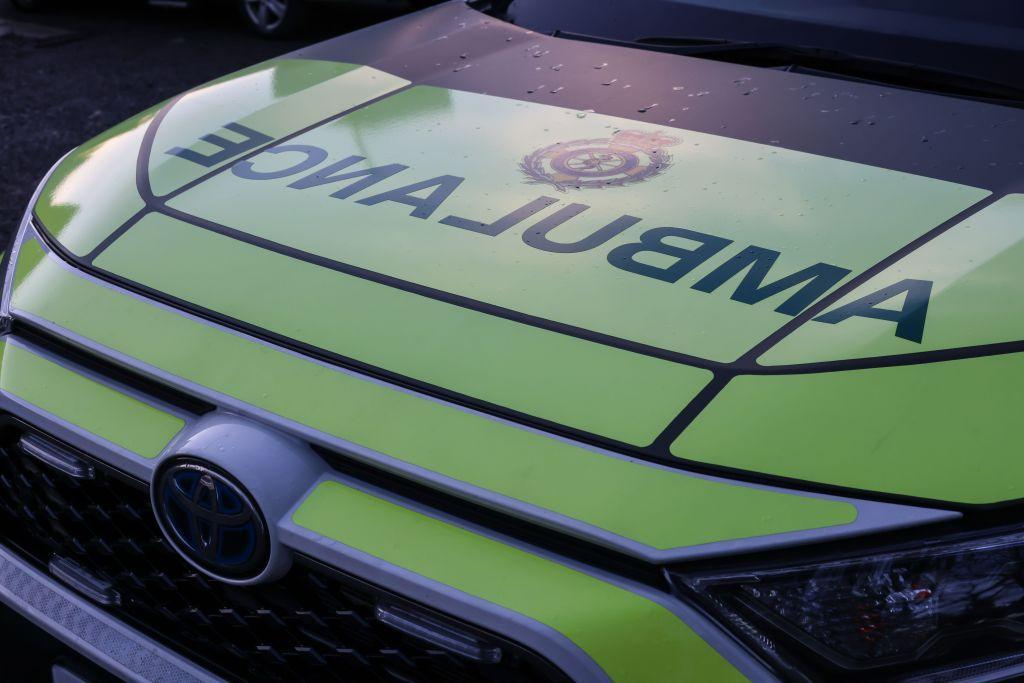
- Published
The health service in Wales heads into 2024 under pressure - with the ambulance service firmly on the frontline.
But can the private sector step in to ease the burden?
One company set up on Anglesey in the last year thinks the answer is yes - as it looks to expand in the new year.
However, an economist has warned looking to businesses to help out is not without risks for public services in Wales.
Established in April, small start-up firm Môn Medics says it is there to "back up" the Welsh Ambulance Service and north Wales health board, by taking on non-emergency patient transfer roles where there is a need for some medical support.
"Winter pressure time, for example, we're in that period now, and where they might not have enough capacity," said director Huw Williams.
"We are there to back them up, we work in partnership with them."
It is certainly true the ambulance service right across Wales has felt the squeeze in recent years, with rising numbers of calls, and too often long waits to hand over patients at hospital.
In November, official figures showed there were nearly 20,000 lost hours for ambulance crews in Wales, as they sat with patients outside hospitals.
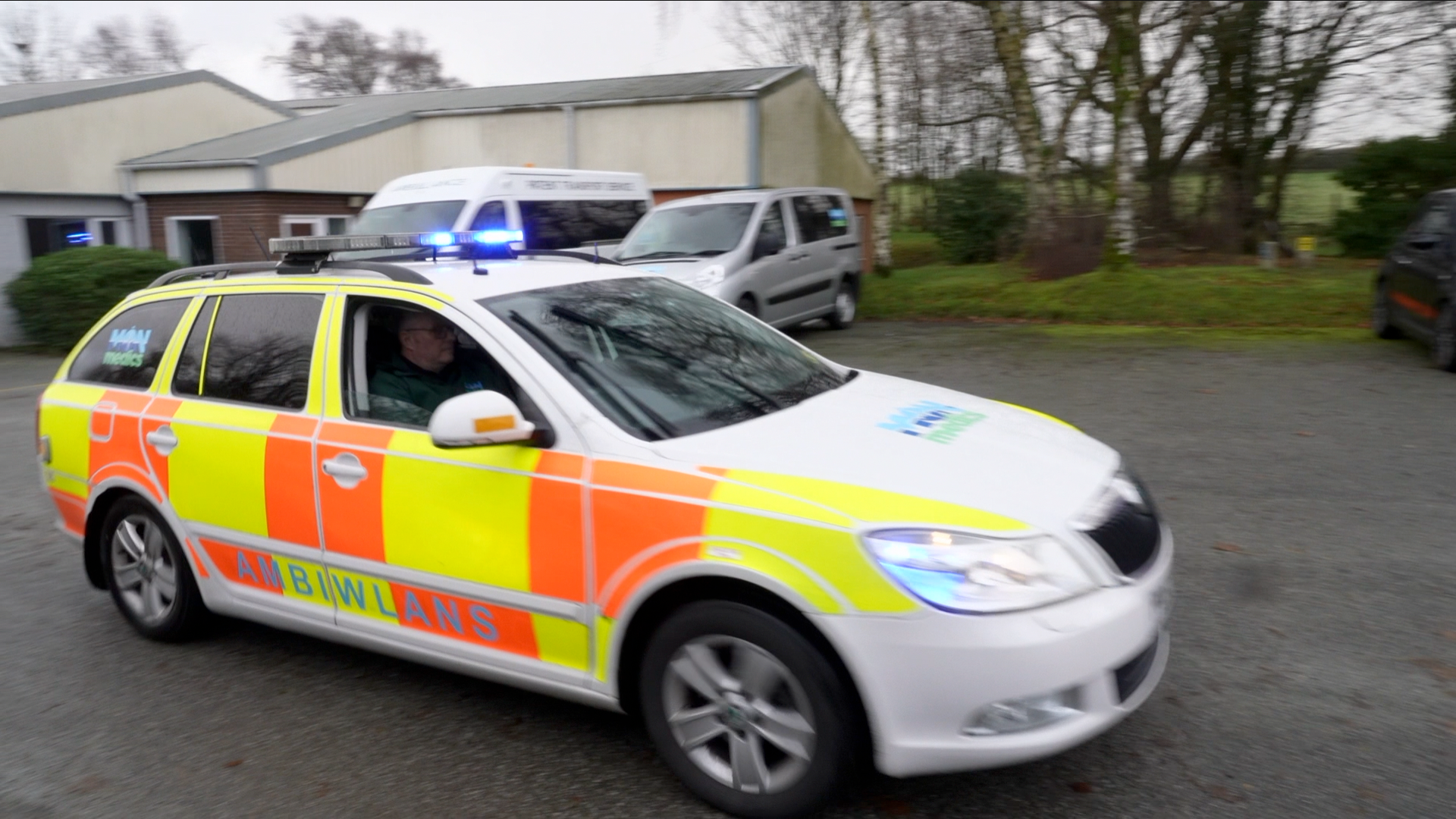
The Anglesey ambulance firm hopes to double its staff in 2024
But it is not only the emergency frontline 999 calls that are providing vital services.
The ambulance service and health boards deal with more than 500,000 non-emergency patient transfer service requests every year in Wales.
The service assists dialysis patients, those receiving cancer care, and perhaps most significantly, helping transfer patients who need to be discharged from a ward - freeing up beds for those who may be waiting in an emergency ambulance outside hospital.
This is where the private sector argues it can really step in and make a difference.
"We could be moving patients from local care homes for an appointment in hospital, or somebody who has had a long stay in hospital and is going home or somebody who might be going across border for some treatment in Liverpool, Stoke or Manchester," explained Mr Williams.
"Our staff are trained to first responder level, we carry oxygen, we carry airway management, we carry a defibrillator.
"The staff are trained to a high level."
A third of NHS Wales staff absence stress-related
- Published30 December 2023
The hospitals struggling the most as winter bites
- Published14 December 2023
Postcode check: How's the NHS coping in your area?
- Published23 March 2023
Benefit or risk?
The NHS in England has made much wider use of private transport services - where £1 of every £275 spent on the health service is on transferring patients.
The services for Lincolnshire were handed to East Midlands Ambulance Service (EMAS) last year - a firm that already operates the same service for Derbyshire and Northamptonshire.
But the private sector model does not always work.
In 2019, one firm was stripped of its contract to provide all the non-emergency transport for Hull, after being described as "inept".
Economist Edward Jones said there could be cost benefits to using private providers in the public ambulance service - but also recognised there are potential pitfalls.
"There is an economic benefit for outsourcing some of the services from the public sector to the private sector, if it's done correctly and under the right conditions," said Dr Edwards, who is a senior lecturer in economics at Bangor University.
"To be successful, we need a lot of companies competing for these tenders, and by having a lot of companies competing against each other, that will drive the price down.
"However, what we tend to see is there are only a handful of companies tendering for this work - so there isn't that guarantee that the best price for the public sector is achieved."
"Expensive sticking plaster"
One trade union in Wales said turning to using private providers marked a "failure to plan and invest".
"Using private ambulance firms means precious public money going into the pockets of companies rather than being invested in more highly trained staff, new vehicles and better pay," said Alan Lofthouse, Unison's acting deputy head of health.
“Public money should be spent fixing problems for the long-term, not reaching for an expensive sticking plaster.”
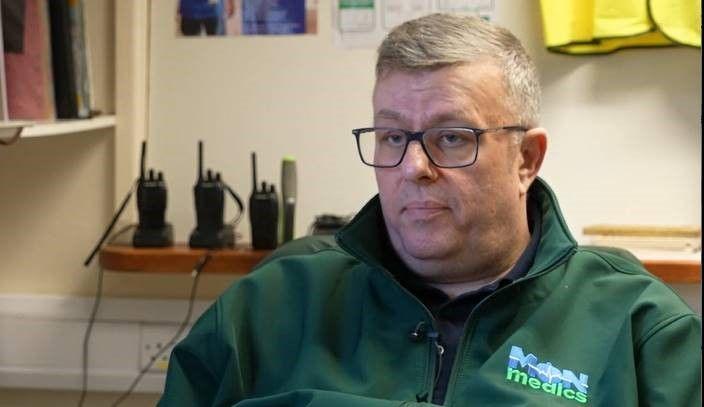
Huw Williams says he is confident about the future for private sector non-emegency services
Expansion plans
In Wales, awarding contracts for any third-party transport services remains with the Welsh Ambulance Service.
There are currently just over 20 companies providing services - from small firms such as Môn Medics to large organisations including the British Red Cross, and Carmarthenshire and Swansea councils.
The performance and monitoring is overseen by a body made up of all the health boards in Wales, external, with its chair appointed by the Welsh government.
The group is currently reviewing the long term future for non-emergency patient transport in Wales.
Môn Medics remains confident that there is a growing market for services such as those provided by their company - with plans to expand - and double ambulance staff on the team from three to six.
"We hope, in the new year, to offer different services - end of life care, which is something important," said Môn Medic director Mr Williams.
"We are also developing the first aid side in order to offer first aid to local events."
- Published21 December 2023

- Published18 December 2023
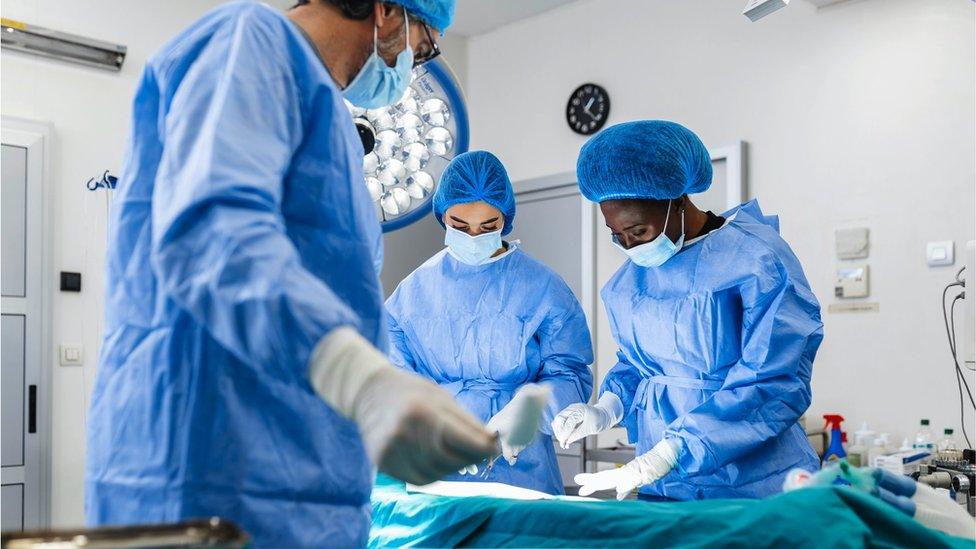
- Published18 December 2023
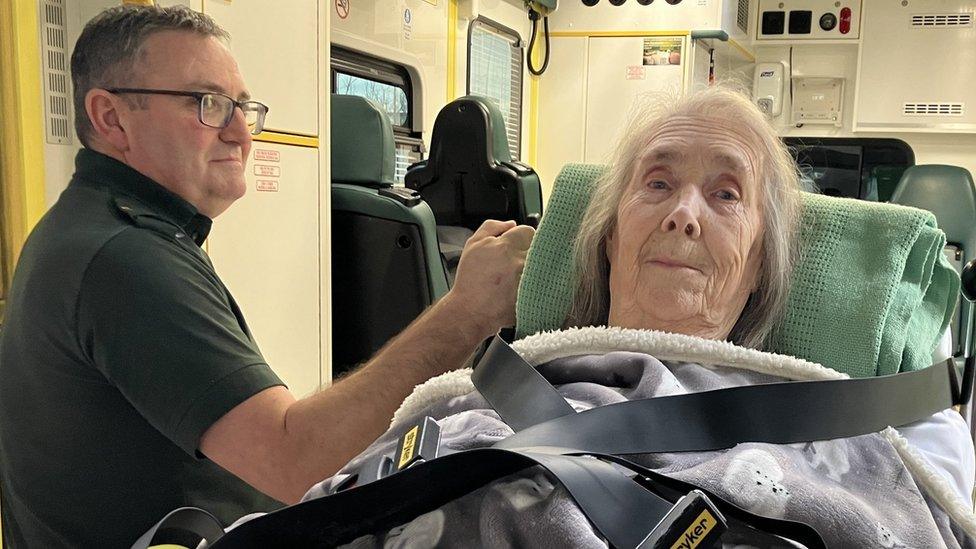
- Published19 November 2023
